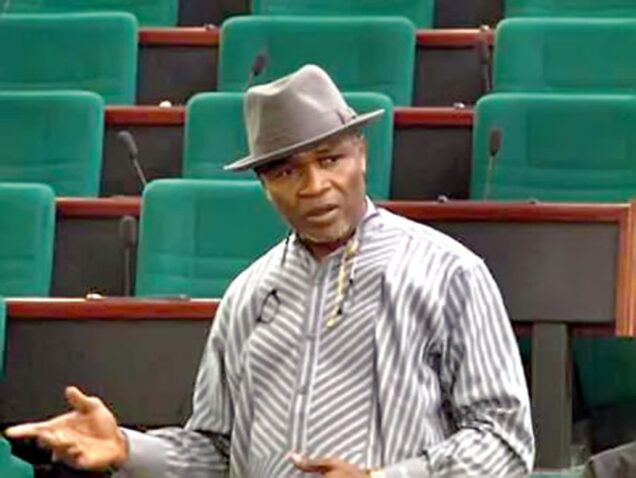The Federal Government has been called upon to prevail on the Nigerian Electricity Regulatory Commission to cancel the recent increment in electricity tariff across the country.
The Minority Leader of the House, Kingsley Chinda, who stated this in a statement on Friday in Abuja, described the hike as “inhuman and evil”.
The lawmakers said the president should instead prioritize the welfare of the people.
According to the parliamentarians, “Transparent dialogue and inclusive decision-making processes are imperative to address the root causes of the energy sector’s inefficiencies and ensure sustainable solutions that benefit all stakeholders and not consistent and persistent increase in tariff.
“We call for increased accountability and transparency in the management of resources within the electricity sector. Citizens have the right to demand efficient service delivery and fair pricing mechanisms that align with their economic realities.”
They said the 300 per cent hike was more than existing rate of inflation, adding that it was done in utter disregards to the plight of ordinary citizens, who are grappling with the adverse effects of the removal of oil subsidy, galloping inflation, unemployment, and inadequate access to basic amenities.”
The statement further read, “We note that in the immediate aftermath of the announcement of the tariff hike, NERC claimed that the hike affects only twelve per cent of electricity consumers who enjoy a minimum of 20 hours of electricity a day. The truth has become stark that this is a stark lie.
“The hike, from data put out by the DISCOS, affects all electricity consumers. This habitual resort to deceit and outright lies clearly puts the government in a bad light and erodes the trust and confidence of the populace in the government.
“The timing of this tariff hike, amidst prevailing economic challenges, is not only insensitive but also detrimental to the well-being of Nigerians. It further highlights the disconnect between policymakers and the realities faced by the masses of our people.”
The minority caucus further reminded the apex government that in other climes, leadership strives to protect the interest of their citizens, saying, “Elsewhere in the global north, governments are doing all they can to protect citizens against the adverse effects of the pandemic on economies.
“In the United Kingdom, for example, where anti-subsidy proselytisers preach against subsidies, His Majesty’s Government has paid almost 40bn ($50bn) in energy subsidies since it began to help households and businesses cope with the surge in power bills after Russia’s invasion of Ukraine.”
Quoting Reuters, the caucus argued that “Between the launch of the schemes in October 2022 and March 2023, nearly £21bn was spent on the Energy Price Guarantee programme that supports households with their bills, the government said.
“A further £12 bn was paid under the Energy Bills Support Scheme, which offered homes payments of £400 towards their bills over the winter months.
“Businesses and other organisations received about £5.5bn under the Energy Bill Relief Scheme and almost £1bn pounds was spent on other programmes”.
It further noted that in the United States, “the government is subsidising (by way of tax credit) thirty percent off the cost of chargers for electric vehicles.”
The situation in Nigeria is different where according to Chinda “the government spends money on frivolities, with no real economic impacts on households or on the lives of ordinary citizens. Here, the directive principle of state policy is, go and die.”
The NERC recently approved a 300 per cent tariff increment for Band A consumers, allowing power distribution companies to raise electricity prices for city dwellers from N68 to N225 per kilowatt-hour with effect from April 1, 2024.









